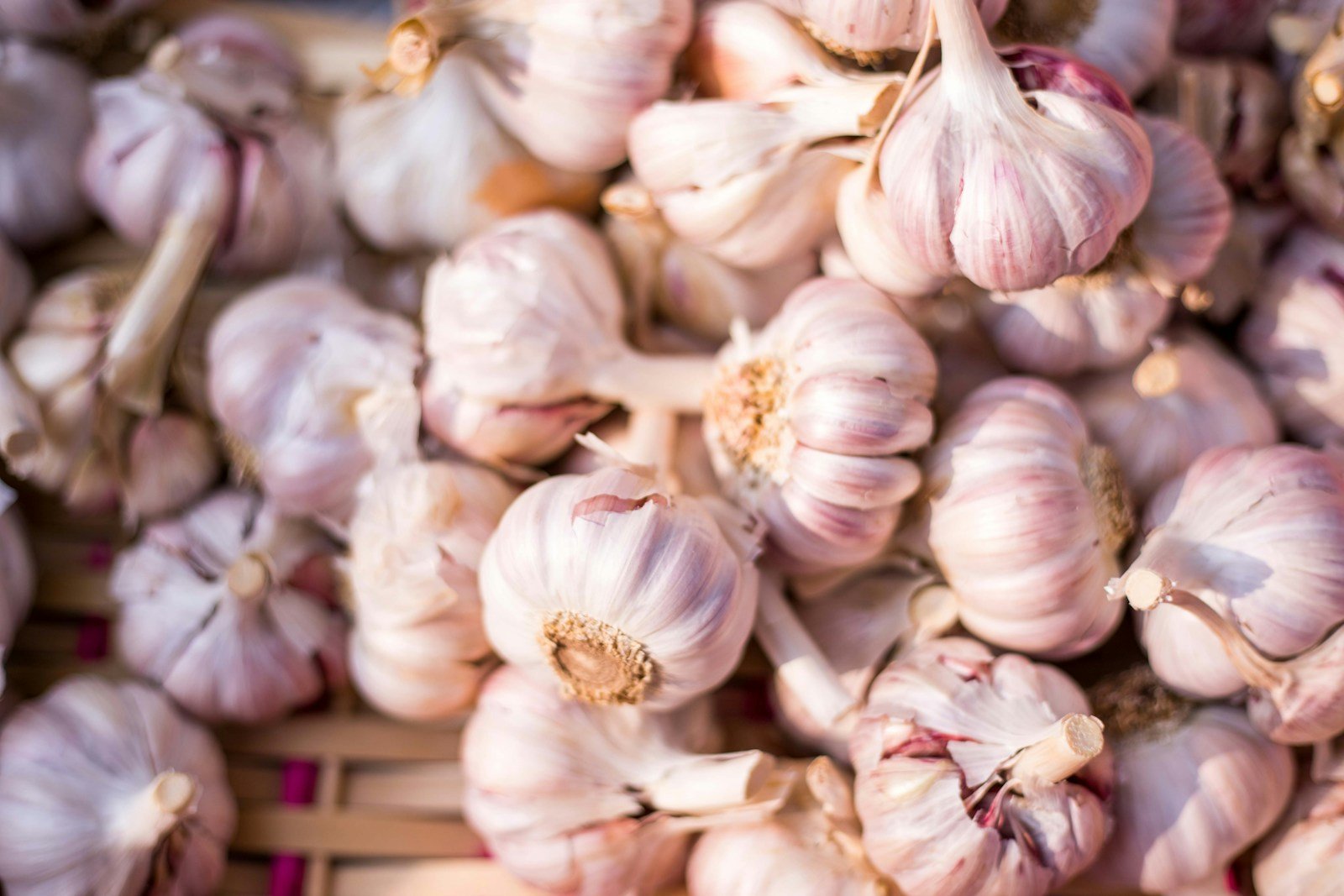Table of Contents
- Introduction
- Nutritional Benefits of Garlic
- Cardiovascular Benefits of Garlic
- Antimicrobial Properties of Garlic
- Potential Cancer-Fighting Properties of Garlic
- Garlic and Blood Sugar Regulation
- Additional Resources and Further Reading
- Practical Tips and Actionable Advice
- Conclusion
Introduction
Garlic, a member of the allium family, has been revered for its culinary and medicinal properties for centuries. This pungent and flavorful bulb has been a staple in various cuisines around the world, adding depth and aroma to countless dishes. However, beyond its culinary applications, garlic has been the subject of numerous scientific studies that have unveiled its remarkable health benefits.
From boosting cardiovascular health to exhibiting antimicrobial properties, garlic has proven to be a true superfood. This comprehensive guide will delve into the numerous advantages of incorporating garlic into your diet, supported by scientific evidence and expert insights.
Nutritional Benefits of Garlic
Garlic is a nutrient-dense food that packs a powerful punch in a small package. It is a rich source of essential vitamins and minerals, including vitamin C, vitamin B6, manganese, selenium, and fiber. Furthermore, garlic contains a unique compound called allicin, which is responsible for many of its health-promoting properties.
| Nutrient | Amount (per 100g) |
|---|---|
| Vitamin C | 31.2 mg |
| Vitamin B6 | 1.235 mg |
| Manganese | 1.672 mg |
| Selenium | 14.2 μg |
| Fiber | 2.1 g |
Cardiovascular Benefits of Garlic
Numerous studies have highlighted the potential cardiovascular benefits of garlic consumption. Garlic has been shown to help lower blood pressure levels, improve cholesterol profiles, and reduce the risk of heart disease.
The compounds present in garlic, particularly allicin, have been found to exhibit antioxidant and anti-inflammatory properties, which can help protect the cardiovascular system from oxidative stress and inflammation-related damage.
Effects on Blood Pressure
Several clinical trials have demonstrated that garlic supplementation can significantly lower both systolic and diastolic blood pressure levels. This effect is believed to be mediated by garlic’s ability to promote vasodilation and improve blood flow.
Impact on Cholesterol Levels
Garlic has been shown to have a positive impact on cholesterol levels, particularly by reducing levels of low-density lipoprotein (LDL) cholesterol, often referred to as “bad” cholesterol. Some studies have also reported an increase in high-density lipoprotein (HDL) cholesterol, or “good” cholesterol, further enhancing garlic’s cardioprotective effects.
Antimicrobial Properties of Garlic
Garlic has long been recognized for its antimicrobial properties, making it an effective natural remedy against a wide range of microorganisms, including bacteria, viruses, and fungi.
The allicin compound found in garlic is primarily responsible for its antimicrobial activity. Allicin has been shown to disrupt the cellular membranes of microbes, inhibiting their growth and proliferation.
This antimicrobial property of garlic has potential applications in various areas, such as food preservation, wound healing, and even as a complementary treatment for certain infections.
Potential Cancer-Fighting Properties of Garlic
Numerous studies have investigated the potential of garlic in reducing the risk of various types of cancer, including cancers of the stomach, colon, breast, and prostate.
The compounds present in garlic, such as allicin, diallyl disulfide, and s-allylcysteine, have been found to exhibit anticancer properties through various mechanisms, including:
- Inducing apoptosis (programmed cell death) in cancer cells
- Inhibiting tumor growth and metastasis
- Enhancing the body’s antioxidant defense mechanisms
- Modulating the immune system’s response to cancer cells
While more research is needed to establish definitive causal relationships, the potential cancer-fighting properties of garlic are promising and have sparked significant interest in the scientific community.
Garlic and Blood Sugar Regulation
Several studies have suggested that garlic may play a role in blood sugar regulation, making it potentially beneficial for individuals with diabetes or those at risk of developing the condition.
The compounds in garlic, particularly allicin and s-allyl cysteine sulfoxide (SACS), have been found to exhibit insulin-sensitizing effects, which can help improve glucose uptake and utilization by cells.
Additionally, garlic has been shown to have antioxidant properties that may help protect pancreatic beta cells, which are responsible for producing insulin, from oxidative damage.

Additional Resources and Further Reading
For those interested in exploring the health benefits of garlic further, the following resources and related topics may be of interest:
- Allicin and Its Role in Health: Delve deeper into the properties and potential applications of allicin, the primary bioactive compound in garlic.
- Garlic and Gut Health: Explore the potential benefits of garlic on gut health, including its effects on the gut microbiome and digestive function.
- Garlic as a Natural Antibiotic: Investigate the use of garlic as a potential natural alternative to conventional antibiotics, particularly in the fight against antibiotic-resistant bacteria.
Frequently Asked Questions
Q: Can garlic interact with medications?
A: While garlic is generally considered safe when consumed in food amounts, it may interact with certain medications, such as anticoagulants (blood thinners), HIV/AIDS medications, and antiviral drugs. It’s always advisable to consult with a healthcare professional before consuming large amounts of garlic, especially if you are taking any medications.
Q: Is it better to consume raw or cooked garlic?
A: Both raw and cooked garlic offer health benefits, but they differ in their nutrient profiles and bioavailability of certain compounds. Raw garlic contains higher levels of allicin, the primary bioactive compound responsible for many of garlic’s health-promoting effects. However, cooked garlic may be more palatable for some individuals and can still provide beneficial nutrients and antioxidants.
Q: How much garlic should I consume daily?
A: While there is no definitive recommended daily intake for garlic, most health organizations suggest consuming around one clove of fresh garlic per day. However, it’s important to note that individual tolerance and preferences may vary, and it’s best to start with smaller amounts and gradually increase consumption as desired.
Practical Tips and Actionable Advice
To incorporate the numerous benefits of garlic into your daily life, consider the following practical tips and actionable advice:
- Choose high-quality garlic: When purchasing garlic, look for fresh, firm bulbs with tightly closed cloves. Avoid bulbs with sprouting or soft spots, as these may indicate deterioration or aging.
- Crush or chop garlic before use: Crushing or chopping garlic cloves releases the allicin compound, enhancing its health benefits. Allow the crushed or chopped garlic to sit for a few minutes before cooking to maximize allicin formation.
- Experiment with different cooking methods: While raw garlic offers the highest concentration of allicin, cooked garlic can still provide numerous health benefits. Experiment with different cooking methods, such as roasting, sautéing, or adding garlic to soups and stews, to incorporate it into your meals.
- Consider garlic supplements: If you find it challenging to consume fresh garlic regularly, garlic supplements can be a convenient alternative. However, it’s essential to consult with a healthcare professional to determine the appropriate dosage and ensure safety, especially if you have any underlying health conditions or are taking medications.
- Combine garlic with other healthy foods: Garlic pairs well with a variety of healthy foods, such as vegetables, lean proteins, whole grains, and healthy fats. Incorporating garlic into balanced meals can enhance the overall nutritional value of your diet.
Conclusion
Garlic, a humble yet powerful ingredient, has proven to be a true superfood, offering a multitude of health benefits. From boosting cardiovascular health and exhibiting antimicrobial properties to potentially reducing the risk of cancer and aiding in blood sugar regulation, garlic deserves a prominent place in any well-balanced diet.
By incorporating garlic into your daily meals and embracing its versatility, you can reap the rewards of this natural wonder. Whether you enjoy it raw, cooked, or in supplement form, make garlic a part of your journey towards better health and well-being.
Remember, moderation is key, and it’s always advisable to consult with a healthcare professional, especially if you have any underlying health conditions or are taking medications. Embrace the incredible benefits of garlic and embark on a flavorful and nutritious culinary adventure.


Leave a Reply